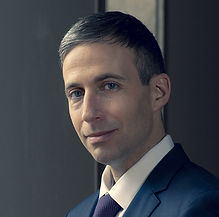Program II: ECCO Dances
Saturday, August 13, 2022 | 7:30 PM
Hannaford Hall, USM | Portland
The original source of Schubert’s fun-loving piano quintet was a song warning young women against being ‘caught’ by ‘angling’ men, but for the piano quintet version he concentrates on the colorful imagery of a trout in its natural habitat. Banner “daringly transforms the [national] anthem, folding it into a teeming score...to create a musical melting pot” (New York Times), and features the ensemble-within-an-ensemble Jupiter String Quartet. The East Coast Chamber Orchestra brings its residency to a high-spirited finale with Tchaikovsky’s heartfelt Serenade for Strings, one of the most definitive and popular works from the late Romantic era, infused with grace, exuberance, and sheer joy.
Franz Schubert Piano Quintet in A Major, D. 667, 'Trout' (1819)*
Tai Murray, violin; Jessica Thompson, viola; Raman Ramakrishnan, cello; Nathan Farrington, bass; Benjamin Hochman, piano
Jessie Montgomery Banner for Solo String Quartet and String Orchestra (2014)
Jupiter String Quartet (Nelson Lee, Meg Freivogel, violins; Liz Freivogel, viola; Daniel McDonough, cello);
East Coast Chamber Orchestra
~Pause~
Pyotr Ilyich Tchaikovsky Serenade for Strings in C Major, Op. 48 (1880)
East Coast Chamber Orchestra
[ENCORE] Maureen Nelson Renaissance Suite
III. Fantasy on a Peruvian Melody
East Coast Chamber Orchestra
* Part of PCMF’s season-wide celebration of Schubert in the 225th anniversary of his birth year.
~Attending Live? Please note that until further notice, properly fitted masks must be worn by all patrons at all times during the concert. On the day of the performance, if you are feeling unwell, please stay at home. We will gladly exchange your tickets for another show. Concert run time is just under 2 hours, including a brief pause.
~Listening Online? The concerts will be live streamed for free on our YouTube channel. The archived streams will be available to view for 24 hours.
Meet The Artists
.jpeg)
Nathan Farrington
bass

J Freivogel
violin

Liz Freivogel
viola

Meg Freivogel
violin
.jpeg)
Benjamin Hochman
piano

Nelson Lee
violin

Kobi Malkin
violin

Daniel McDonough
cello

Tai Murray
violin

Kenneth Olsen
cello

Susie Park
violin

Raman Ramakrishnan
cello
.jpeg)
Melissa Reardon
viola

Jessica Thompson
viola
Meet The Composers
Jessie Montgomery
b. 1981
Jessie Montgomery is an acclaimed composer, violinist, and educator. Her music interweaves classical music with elements of vernacular music, improvisation, language, and social justice, placing her squarely as one of the most relevant interpreters of 21st-century American sound and experience.
Banner is a rhapsody on the theme of the Star Spangled Banner, written as a tribute for its 200th anniversary. Scored for solo string quartet and string orchestra, the piece draws on musical and historical sources from various world anthems and patriotic songs in an attempt to answer the question: “What does an anthem for the 21st century sound like in today’s multi-cultural environment?”
Franz Schubert
1797-1828
Franz Schubert was an Austrian composer of the late Classical and early Romantic eras. Despite his short lifetime, he left behind a vast catalog, including more than 600 secular vocal works (mainly lieder), seven complete symphonies, sacred music, operas, incidental music, and a large body of piano and chamber music.
The Trout Quintet was composed in 1819 when Schubert was just 22 years old, however it was not published until 1829, a year after the composer's death. Rather than the usual piano quintet lineup of piano and string quartet, this quintet is written for piano, violin, viola, cello and double bass. The piece is known as the Trout because the fourth movement is a set of variations on Schubert's earlier Lied "Die Forelle" ("The Trout").
Pyotr Ilyich Tchaikovsky
1840-1893
Pyotr Ilyich Tchaikovsky was a Russian composer of the Romantic period. He wrote some of the most popular concert and theatrical music in the current classical repertoire, including the ballets Swan Lake and The Nutcracker, the 1812 Overture, his First Piano Concerto, Violin Concerto, several symphonies, and the opera Eugene Onegin.
At the very time that Tchaikovsky was composing his nationalistic, powerful and undeniably noisy 1812 Overture, he was also writing the graceful and poised Serenade for Strings. The composer's former teacher Anton Rubinstein declared it Tchaikovsky’s best piece. Now considered one of the late Romantic era's definitive compositions, the Serenade has also been taken up as music for the ballet and films.






